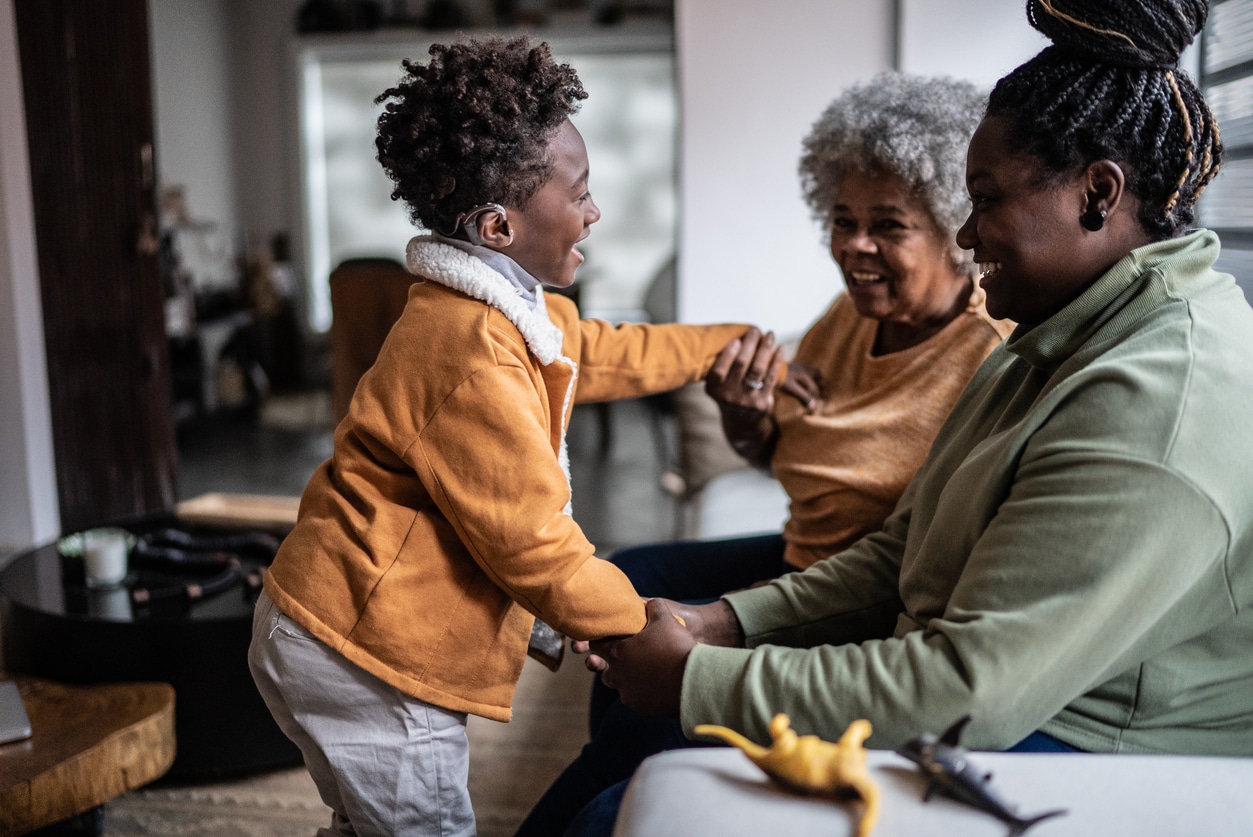Hearing loss can lead to feelings of isolation and confusion as sometimes a person may not realize they’re experiencing hearing loss. At times, it impacts relationships, and may even can impact family life. Currently, 1.5 billion people across the world live with hearing loss; consider how hearing loss may impact your interactions with those closest to you when considering your approach to treating hearing loss.
Communication Struggles

One of the most significant impacts of hearing loss on family life is the strain it places on communication. Conversations become more challenging, especially in noisy environments like Ocean Grill, or when multiple people are talking simultaneously. Family members may need to repeat themselves frequently or speak louder, which can lead to frustration for both the individual with hearing loss and their loved ones.
Additionally, small habits like increasing the volume on the television or other devices may lead to annoyance among other members of the family. Moreover, miscommunication becomes more common, leading to misunderstandings that may create unintended outcomes. Simple tasks like planning outings or discussing household matters may require more effort and time, affecting the overall efficiency of everyday life. The family member with hearing loss may also experience listening fatigue, which might cause them to lose energy during family gatherings, negatively impacting their quality of life.
Emotional and Social Isolation
Hearing loss can contribute to feelings of isolation and loneliness, especially for older adults. The person with hearing loss may withdraw from social activities or avoid gatherings where they feel unable to fully participate in conversations.
For family members, witnessing their loved one struggle with communication and social interactions can be emotionally challenging. They may feel helpless or frustrated at not being able to improve the situation despite their best efforts.
Support and Coping Strategies
Despite the challenges posed by hearing loss, there are proactive steps families can take to support each other and maintain strong relationships:
- Seek professional help: Encourage the individual with hearing loss to seek professional evaluation and treatment from a hearing specialist. Family members are encouraged to attend appointments with the person with hearing loss and can even schedule the first appointment for them. Hearing aids can significantly improve the quality of life for those with hearing loss and help prevent many comorbidities associated with hearing loss.
- Educate and raise awareness: Educate family members about hearing loss and its impacts. This awareness can help foster empathy and understanding, reducing frustration and improving communication strategies within the family.
- Adapt the environment: Make simple modifications to the home environment to enhance communication, such as reducing background noise, using assistive listening devices or ensuring good lighting for lip reading.
- Join support groups: Consider joining support groups or connecting with other families who are also navigating hearing loss. Sharing experiences and strategies with others facing similar challenges can provide valuable emotional support and practical advice.
While hearing loss presents unique challenges for families, it can also be an opportunity to strengthen bonds through empathy, patience and effective communication strategies. By working together and seeking professional guidance when needed, families can mitigate the impacts of hearing loss. To learn more about how to best navigate hearing loss, schedule a consultation with Aaron's Hearing Aid & Audiology Center today.
